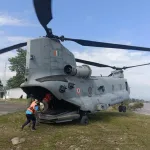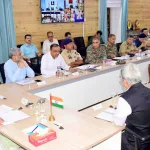Srinagar, July 15:Local stakeholders across Kashmir are urging the government to reopen five prominent tourist destinations, Doodhpathri, Yousmarg, Tosamaidan, Bangus, and Aharbal,which remain closed more than two months after the deadly terror attack in Pahalgam that claimed the lives of 26 tourists.
The April 22 attack led to the temporary closure of several tourist sites as part of enhanced security measures. While many destinations have since been reopened following orders from Lieutenant Governor Manoj Sinha, these five key locations remain off-limits, leaving thousands of workers in the tourism sector without a source of income during the peak of the summer season.
“This is our only season to earn through the year,” said Abdul Rashid, a pony handler in Yousmarg. “We welcome any move that ensures tourists’ safety, but why are we still closed when others have reopened?”
Known for their scenic meadows, waterfalls, and pine forests, these highland resorts in Budgam, Shopian, Kupwara, and Kulgam have grown steadily in popularity, helping to diversify Kashmir’s tourism beyond the more saturated destinations of Gulmarg, Pahalgam, and Sonamarg.
Their continued closure, however, is compounding hardship for pony operators, taxi drivers, tea stall owners, homestay providers, guides, and handicraft sellers—many of whom rely entirely on seasonal tourism for their livelihood.
“Security is important, but people are running out of savings,” said RubinaBano, who owns a small handicrafts shop in Aharbal. “Other places have reopened. We are simply asking for the same opportunity.”
The places had experienced a consistent increase in visitor figures during the last few years, serving to spread Kashmir’s tourism base outside Gulmarg, Pahalgam, and Sonamarg. Their appeal as serene, offbeat destinations had also served to spur local economies in relatively out-of-the-way places.
“These destinations are not just scenic—they are economic lifelines,” said Irfan Shah, a tourism consultant based in Srinagar. “With the right regulations, reopening them can strike a balance between safety and sustainability.”
Tourism stakeholders and civil society organizations are now demanding a regulated re-opening, with some of the measures including enhanced security presence, tourist registration, eco-tourism regulations, and active participation of residents in site management.
“We want safety first but not silence forever,” Mohammad Shafi, a local elder, said in Tosamaidan. “Opening with due precautions is possible and necessary.”
The ripple effects of the closures are being felt throughout industries. Stalls are still closed, transport demand is nil, and a good number of youths who had employed themselves as seasonal guides or service providers are currently out of work.
“We are not seeking charity,” declared Shazia Jan, who owns a tea shop close to Doodhpathri. “We simply wish to get an opportunity to work once more like others have.”
With monsoon already set in, people are in the hopes that government will open up efforts to encompass Doodhpathri, Yousmarg, Aharbal, Bangus and Tosamaidan reviving livelihoods and relief to the hills that have remained dormant for far too long.








